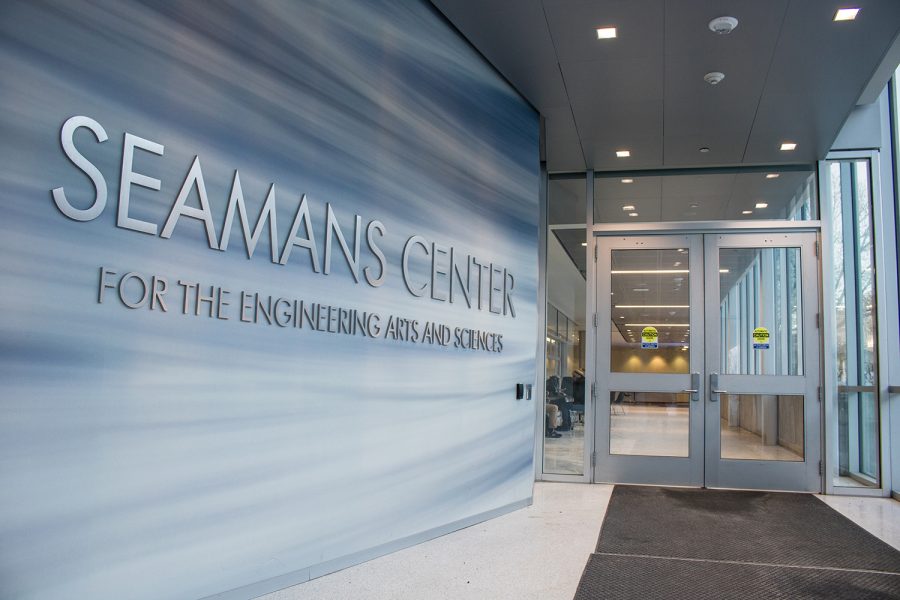UI engineering professor receives distinguished award
A UI engineering faculty member received a National Science Foundation award to conduct research on green stormwater treatment and conduct public-education programs.
The Seamans Center for the Engineering Arts and Sciences is seen on Tuesday, January 29, 2019.
April 7, 2019
People living in the U.S. don’t always think about where their water comes from or if it contains pollutants. The treatment of stormwater can contribute to creating a cleaner environment.
University of Iowa Assistant Professor of civil and environmental engineering Gregory LeFevre received the National Science Foundation CAREER Award to conduct research on inexpensive ways to remove pollutants in stormwater treatment.
Through his research, LeFevre will work on ways to treat stormwater runoff through the use of plants, fungi, and bacteria to filter pollutants out of the water. Along with conducting research, he will create public-education programs on water quality.
The research is funded by a five-year grant from the National Science Foundation totaling $299,435 for both the research and the public-education program.
Stormwater doesn’t have the same treatment regulation as sewer water and can be neglected, LeFevre said. The concern with stormwater used to be flooding, but then people became interested in trace-organic contaminants in the water, such as tire dust present on roadways, he said.
“What we’re trying to do is understand and design better green stormwater infrastructure, so that we can capture pollutants and then subsequently degrade them using biological processes,” LeFevre said.
Through using natural processes to treat the water, it makes the treatment low-maintenance and inexpensive, he said.
The public-education aspect of the research will create programs for middle-school children to educate them on water quality and water treatment, LeFevre said. The researchers will work with the College of Education to create the program. They’ve been creating public outreach videos explaining what water quality is and what environmental engineers are, he said.
As land is paved over, stormwater and snowmelt run into water sources — such as rivers and lakes — instead of being absorbed into the ground, Michelle Scherer, a professor of civil and environmental engineering, said in an email to The Daily Iowan.
RELATED: UI Urban & Regional Planning School teams up with College of Engineering for new degree
“This means our surface waters are unfortunately getting more and more polluted,” Scherer said. “We need new, innovative approaches to manage how to best treat or avoid so much runoff.”
The ability to treat stormwater can contribute to groundwater replenishment and drinking water availability, said Professor David Cwiertny of IIHR — Hydroscience & Engineering.
“The fact that you can clean [stormwater] up in some ways creates a source of water you might not otherwise have,” he said. These days, when every drop counts because places are struggling to bridge the gap between shrinking supple and growing demand, it’s a great resource.”
It can be difficult to see the pollution in water from pesticides and fertilizers until the pollutants begin to affect the ecosystem, Scherer said. Through educating the public, it can allow policies to gain momentum and be put in place before pollution gets to the point in which you can see it, she said.
The National Science Foundation CAREER Award is given to early career faculty who serve as academic role models for their colleagues in research and education.
Having a faculty member receive the award builds and maintains the reputation of the College of Engineering, Scherer said. It also provides young faculty members with opportunities to pursue research, she said.







